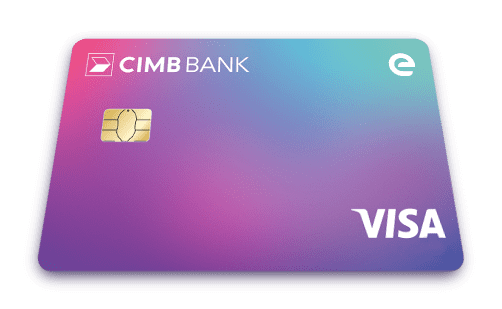{{tile.title}}
{{tile.description}}
{{tile.expiryDate}}





We will be right with you.
Moving Forward
CIMB ❘ 29 Jun 2022
4 min(s) read
As it turns out, a third of adults in Malaysia don’t pay their bills on time*.
Juggling multiple payments and due dates can be troublesome, but getting hit with late payment fees and not-so-friendly reminders are even more stressful.
So, let's make bill payments your priority from now on. Take control of your finances and manage your bills with these tips.
It’s time to get organised. Make a list of all your bills and their due dates.
Your list can include loan repayments, credit card debts, rental or management fee, internet and streaming access, insurance premium, phone service and utility fees.
Once you’ve sorted everything into a monthly checklist, you’ll be less likely to forget about your payments or miss due dates.
Make it even easier to remember your bill payments with a good finance tracker (or a payment reminder) app.
There’s plenty of free apps available for download so give them a try! Even better if they have a feature that will prompt you in advance. That way, you’ll be ahead of your payment deadlines and avoid costly late penalty fees.
With automation, bill payments are easy and effortless. Setting up automatic payments means that the biller or bank will deduct the amount owed from your designated bank account at scheduled times.
You can set up a recurring payment with CIMB Clicks or directly with the biller.
Not a fan of auto payment? Then save your billers in your “favourite” account list for easier payments in the future. Here’s how to use CIMB Clicks quick payment:

Hey, we get it. Some of us prefer a good D-I-Y project over an app. So why not create a bill payment calendar so you can see upcoming payments and due dates at a glance? A printable bill payment calendar also serves as a visual reminder to be mindful of your spending.
Notifications and reminders go a long way towards managing your bills every month. Most importantly, your account balance should be sufficient when the scheduled payments are deducted.
For every automated withdrawal, you can set reminder texts or emails before the scheduled date. This way, you can transfer funds to your bank account to cover the payments. As an extra layer of protection, always be sure to set text alerts to notify you whenever a payment has been charged to your account or credit card.
Now that you’ve paid your bills, you can focus on paying towards your future self, in other words, your savings. A simple way would be to set up automatic transfers, where a sum from your monthly income is directed into your savings account.
Besides, automation can help make your money work for you too. Put your investments on autopilot with a recurring monthly deposit to your investment accounts or retirement funds. Alternatively, you can also opt for automatic renewals for your fixed deposits, which reinvest your principal amount and the interest earned.
This article is brought to you by CIMB as part of our ongoing efforts to raise the level of financial literacy among Malaysians. Financial knowledge and understanding are key to making well-informed and meaningful financial decisions that will improve all our well-being. This, in turn, achieves CIMB’s purpose of advancing customers and society.
Source:
*https://www.oecd.org/financial/education/oecd-infe-2020-international-survey-of-adult-financial-literacy.pdf
This link is provided for your convenience only and shall not be considered or construed as an endorsement or verification of such linked website or its contents by CIMB Group.
CIMB Group makes no warranties as to the status of this link or information contained in the website you are about to access.
Do you wish to proceed?

